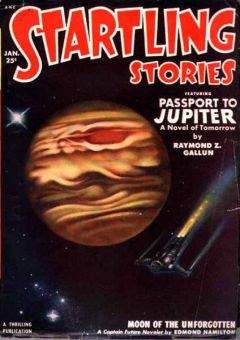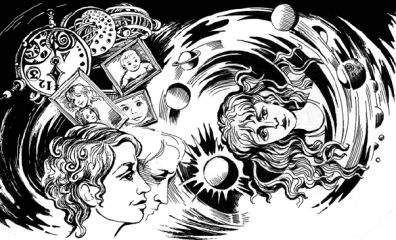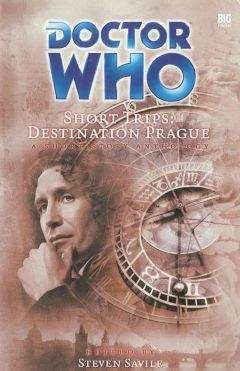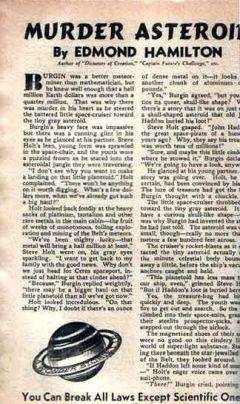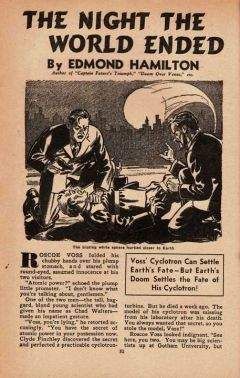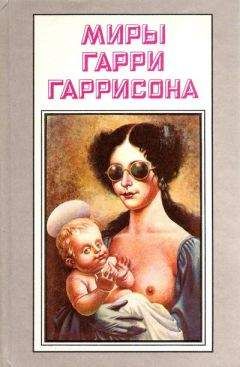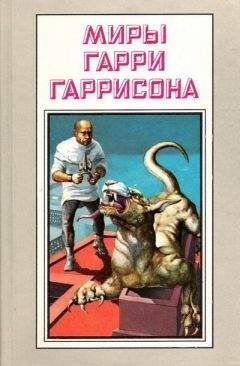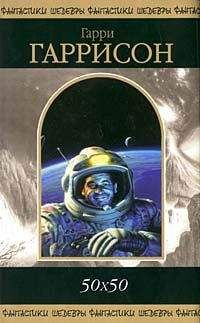Somerset Maugham - Sixty-Five Short Stories
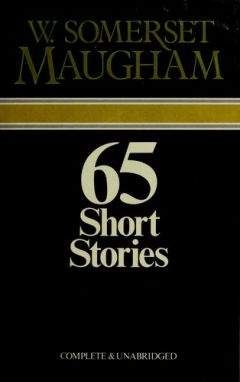
Скачивание начинается... Если скачивание не началось автоматически, пожалуйста нажмите на эту ссылку.
Жалоба
Напишите нам, и мы в срочном порядке примем меры.
Описание книги "Sixty-Five Short Stories"
Описание и краткое содержание "Sixty-Five Short Stories" читать бесплатно онлайн.
'They shoot. They play football and tennis and cricket. I get on with them quite well. The women are intolerable. They are jealous and spiteful and lazy. They can talk of nothing. If you introduce an intellectual subject they look down their noses as though you were indecent. What can they talk about now? They're interested in nothing. If you speak of the body they think you improper, and if you speak of the soul they think you priggish.'
'You mustn't take what my wife says too literally,' smiled Munro, in his gentle, tolerant way. 'The community here is just like any other in the East, neither very clever, nor very stupid, but amiable and kindly. And that's a good deal.'
'I don't want people to be amiable and kindly. I want them to be vital and passionate. I want them to be interested in mankind. I want them to attach more importance to the things of the spirit than to a gin pahit or a curry tiffin. I want art to matter to them, and literature.' She addressed herself abruptly to Neil: 'Have you got a soul?'
'Oh, I don't know. I don't know exactly what you mean.'
'Why do you blush when I ask you? Why should you be ashamed of your soul? It is what is important in you. Tell me about it. I am interested in you and I want to know.'
It seemed very awkward to Neil to be tackled in this way by a perfect stranger. He had never met anyone like this. But he was a serious young man and when he was asked a question straight out he did his best to answer it. It was Munro's presence that embarrassed him.
'I don't know what you mean by the soul. If you mean an immaterial or spiritual entity, separately produced by the creator, in temporary conjunction with the material body, then my answer is in the negative. It seems to me that such a radically dualistic view of human personality cannot be defended by anyone who is able to take a calm view of the evidence. If, on the other hand, you mean by soul the aggregate of psychic elements which form what we know as the personality of the individual, then, of course, I have.'
'You're very sweet and you're wonderfully handsome,' she said, smiling. 'No, I mean the heart with its longings and the body with its desires and the infinite in us. Tell me, what did you read on the journey, or did you only play deck tennis?'
Neil was taken aback at the inconsequence of her reply. He would have been a little affronted except for the good-humour in her eyes and the naturalness in her manner. Munro smiled quietly at the young man's bewilderment, when he smiled the lines that ran from the wings of his nostrils to the corners of his mouth became deep furrows.
'I read a lot of Conrad.'
'For pleasure or to improve your mind?'
'Both. I admire him awfully.'
Darya threw up her arms in an extravagant gesture of protest.
'That Pole,' she cried. 'How can you English ever have let yourselves be taken in by that wordy mountebank? He was all the superficiality of his countrymen. That stream of words, those involved sentences, the showy rhetoric, that affection of profundity: when you get through all that to the thought at the bottom, what do you find but a trivial commonplace? He was like a second-rate actor who puts on a romantic dress and declaims a play by Victor Hugo. For five minutes you say this is heroic, and then your whole soul revolts and you cry, no, this is false, false, false.'
She spoke with a passion that Neil had never known anyone show when speaking of art or literature. Her cheeks, usually colourless, flushed and her pale eyes glowed.
'There's no one who got atmosphere like Conrad,' said Neil. 'I can smell and see and feel the East when I read him.'
'Nonsense. What do you know about the East? Everyone will tell you that he made the grossest blunders. Ask Angus.'
'Of course he was not always accurate,' said Munro, in his measured, reflective way. 'The Borneo he described is not the Borneo we know. He saw it from the deck of a merchant-vessel and he was not an acute observer even of what he saw. But does it matter? I don't know why fiction should be hampered by fact. I don't think it's a mean achievement to have created a country, a dark, sinister, romantic, and heroic country of the soul.'
'You're a sentimentalist, my poor Angus.' And then again to Neil: 'You must read Turgenev, you must read Tolstoy, you must read Dostoyevsky.'
Neil did not in the least know what to make of Darya Munro. She skipped over the first stages of acquaintance and treated him at once like someone she had known intimately all her life. It puzzled him. It seemed so reckless. When he met anyone his own instinct was to go cautiously. He was amiable, but he did not like to step too far before he saw his way before him. He did not want to give anyone his confidence before he thought himself justified. But with Darya you could not help yourself; she forced your confidence. She poured out the feelings and thoughts that most people keep to themselves like a prodigal flinging gold pieces to a scrambling crowd. She did not talk, she did not act, like anyone he had ever known. She did not mind what she said. She would speak of the natural functions of the human animal in a way that brought the blushes coursing to his cheeks. They excited her ridicule.
'Oh, what a prig you are! What is there indecent in it? When I'm going to take a purge, why shouldn't I say so, and when I think you want one, why shouldn't I tell you?'
'Theoretically I dare say you're right,' said Neil, always judicious and reasonable.
She made him tell her of his father and mother, his brothers, his life at school and at the university. She told him about herself. Her father was a general killed in the war and her mother a Princess Lutchkov. They were in Eastern Russia when the Bolsheviks seized power, and fled to Yokohama. Here they had subsisted miserably on the sale of their jewels and such objects of art as they had been able to save, and here she married a fellow-exile. She was unhappy with him and in two years divorced him. Her mother died and, penniless, she was driven to earn her living as best she could. She was employed by an American relief organization. She taught in a mission school. She worked in a hospital. She made Neil's blood boil, and at the same time embarrassed him very much, when she spoke of the men who tried to take advantage of her defencelessness and her poverty. She spared him no details.
'Brutes,' he said.
'Oh, all men are like that,' she replied, with a shrug of her shoulders.
She told him how once she protected her virtue at the point of her revolver.
'I swore I'd kill him if he took another step, and if he had I'd have shot him like a dog.'
'Gosh!' said Neil.
It was at Yokohama that she met Angus. He was spending his leave in Japan. She was captivated by his straightforwardness, the decency which was so obvious in him, his tenderness and his consideration. He was not a business man; he was a scientist, and science is milk-brother to art. He offered her peace. He offered her security. And she was tired ofJapan. Borneo was a land of mystery. They had been married for five years.
She gave Neil the Russian novelists to read. She gave him Fathers and Sons, Anna Karenina, and The Brothers Karamazov.
'Those are the three peaks of our literature. Read them. They are the greatest novels the world has ever seen.'
Like many of her countrymen she talked as though no other literature counted, and as though a few novels and stories, some indifferent poetry, and half a dozen good plays had made whatever else the world has produced negligible. Neil was fascinated and overwhelmed.
'You're rather like Alyosha yourself, Neil,' she said, looking at him with eyes that were now so soft and tender, 'an Alyosha with a Scotch dourness, suspicious and prudent, that will not let the soul in you, the spiritual beauty, come out.'
'I'm not a bit like Alyosha,' he answered self-consciously.
'You don't know what you're like. You don't know anything about yourself. Why are you a naturalist? Is it for money? You could have made much more money by going into your uncle's office in Glasgow. I feel in you something strange and unearthly. I could bow down at your feet as Father Zossima did to Dimitri.'
'Please don't,' he said, smiling, but flushing a little too.
But the novels he read made her seem a little less strange to him. They gave her an environment and he recognized in her traits which, however unusual in the women he knew in Scotland, his mother and the daughters of his uncle in Glasgow, were common to many of the characters in Russian fiction. He no longer wondered that she should like to sit up so late, drinking innumerable cups of tea, and lie on the sofa nearly all day long reading and incessantly smoking cigarettes. She could do nothing at all for days on end without being bored. She had a curious mixture of languor and zest. She often said, with a shrug of her shoulders, that she was an Oriental, and a European only by chance. She had a feline grace that indeed suggested the Oriental. She was immensely untidy and it did not seem to affect her that cigarette-ends, old papers, and empty tins should lie about their living-room. But he thought she had something of Anna Karenina in her and he transferred to her the sympathy he felt for that pathetic creature. He understood her arrogance. It was not unnatural that she despised the women of the community, whose acquaintance little by little he made; they were commonplace; her mind was quicker than theirs, she had a wider culture, and she had above all a sort of tremulous sensitiveness that made them extraordinarily colourless. She certainly took no pains to conciliate them. Though at home she slopped about in a sarong and baju, when she and Angus went out to dinner she dressed with a splendour that was somewhat out of place. She liked to display her ample bosom and her shapely back. She painted her cheeks and made up her eyes like an actress for the footlights. Though it made Neil angry to see the amused or outraged glances that her appearance provoked, he could not in his heart but think it a pity that she should make such an object of herself. She looked grand, of course, but if you hadn't known who she was you would have thought she wasn't respectable. There were things about her that he could never get over. She had an enormous appetite and it fashed him that she ate more than he and Angus together. He could never quite get used to the bluntness with which she discussed sexual matters. She took it for granted that at home and in Edinburgh he had had affairs with a host of women. She pressed him for details of his adventures. His Scotch pawkiness helped him to parry her thrusts and he evaded her questions with native caution. She laughed at his reticence.
Sometimes she shocked him. He grew accustomed to the frankness with which she admired his looks, and when she told him that he was as beautiful as a young Norse god he did not turn a hair. Flattery fell off him like water from a duck's back. But he did not like it when she ran her hand, though large, very soft, with caressing fingers, through his curly hair or, a smile on her lips, stroked his smooth face. He couldn't bear being mussed about. One day she wanted a drink of tonic water and began pouring some out in a glass that stood on the table.
'That's my glass,' he said quickly. I've just been drinking out of it.'
'Well, what of it? You haven't got syphilis, have you?'
'I hate drinking out of other people's glasses myself.'
She was funny about cigarettes too. Once, when he hadn't been there very long, he had just lit one, when she passed and said:
'I want that.'
She took it out of his mouth and began to smoke it. After two or three puffs, she said she did not want any more and handed it back to him. The end she had had in her mouth was red from the rouge on her lips, and he didn't want to go on smoking it at all. But he was afraid she would think it rude if he threw it away. It somewhat disgusted him. Often she would ask him for a cigarette and when he handed it to her, say:
'Oh, light it for me, will you?'
When he did so, and held it out to her, she opened her mouth so that he should put it in. He hadn't been able to help wetting the end a little. He wondered she could bear to put it in her mouth after it had been in his. The whole thing seemed to him awfully familiar. He was sure Munro wouldn't like it. She had even done this once or twice at the club. Neil had felt himself go purple. He wished she hadn't got these rather unpleasant habits, but he supposed that they were Russian, and one couldn't deny that she was wonderfully good company. Her conversation was very stimulating. It was like champagne (which Neil had tasted once and thought wretched stuff), 'metaphorically speaking'. There was nothing she couldn't talk about. She didn't talk like a man; with a man you generally knew what he would say next, but with her you never did; her intuition was quite remarkable. She gave you ideas. She enlarged your mind and excited your imagination. Neil felt alive as he had never felt alive before. He seemed to walk on mountain peaks, and the horizons of the spirit were unbounded. Neil felt a certain complacency when he stopped to reflect on what an exalted plane his mind communed with hers. Such conversations made very small beer of the vaunted pleasure of sense. She was in many ways (he was of a cautious nature and seldom made a statement even to himself that he did not qualify) the most intelligent woman he had ever met. And besides, she was Angus Munro's wife.
For, whatever Neil's reservations were about Darya, he had none about Munro, and she would have had to be a much less remarkable woman not to profit by the enormous admiration he conceived for her husband. With him Neil let himself go. He felt for him what he had never felt for anyone before. He was so sane, so balanced, so tolerant. This was the sort of man he would himself like to be when he was older. He talked little, but when he did, with good sense. He was wise. He had a dry humour that Neil understood. It made the hearty English fun of the men at the club seem inane. He was kind and patient. He had a dignity that made it impossible to conceive anyone taking a liberty with him, but he was neither pompous nor solemn. He was honest and absolutely truthful. But Neil admired him no less as a scientist than as a man. He had imagination. He was careful and painstaking. Though his interest was in research he did the routine work of the museum conscientiously. He was just then much interested in stick-insects and intended to write a paper on their powers of parthenogenetic reproduction. An incident occurred in connexion with the experiments he was making that made a great impression on Neil. One day, a little captive gibbon escaped from its chain and ate up all the larvae and so destroyed the whole of Munro's evidence. Neil nearly cried. Angus Munro took the gibbon in his arms and, smiling, stroked it.
'Diamond, Diamond,' he said, quoting Sir Isaac Newton, 'you little know the damage you have done.'
He was also studying mimicry and instilled into Neil his absorbed interest in this controversial subject. They had interminable talks about it. Neil was astonished at the Curator's wonderful knowledge. It was encyclopaedic, and he was abashed at his own ignorance. But it was when Munro spoke of the trips into the country to collect specimens that his enthusiasm was most contagious. That was the perfect life, a life of hardship, difficulty, often of privation and sometimes of danger, but rewarded by the thrill of finding a rare, or even a new, species, by the beauty of the scenery, and the intimate observation of nature, and above all the sense of freedom from every tie. It was for this part of the work that Neil had been chiefly engaged. Munro was occupied in research work that made it difficult for him to be away from home for several weeks at a time, and Darya had always refused to accompany him. She had an unreasoning fear of the jungle. She was terrified of wild beasts, snakes, and venomous insects. Though Munro had told her over and over again that no animal hurt you unless you molested or frightened it, she could not get over her instinctive horror. He did not like leaving her. She cared little for the local society and with him away he realized that life for her must be intolerably dull. But the Sultan was keenly interested in natural history and was anxious that the museum should be completely representative of the country's fauna. One expedition Munro and Neil were to make together, so that Neil should learn how to go to work, and the plans for this were discussed by them for months. Neil looked forward to it as he had never looked forward to anything in his life.
Подписывайтесь на наши страницы в социальных сетях.
Будьте в курсе последних книжных новинок, комментируйте, обсуждайте. Мы ждём Вас!
Похожие книги на "Sixty-Five Short Stories"
Книги похожие на "Sixty-Five Short Stories" читать онлайн или скачать бесплатно полные версии.
Мы рекомендуем Вам зарегистрироваться либо войти на сайт под своим именем.
Отзывы о "Somerset Maugham - Sixty-Five Short Stories"
Отзывы читателей о книге "Sixty-Five Short Stories", комментарии и мнения людей о произведении.





